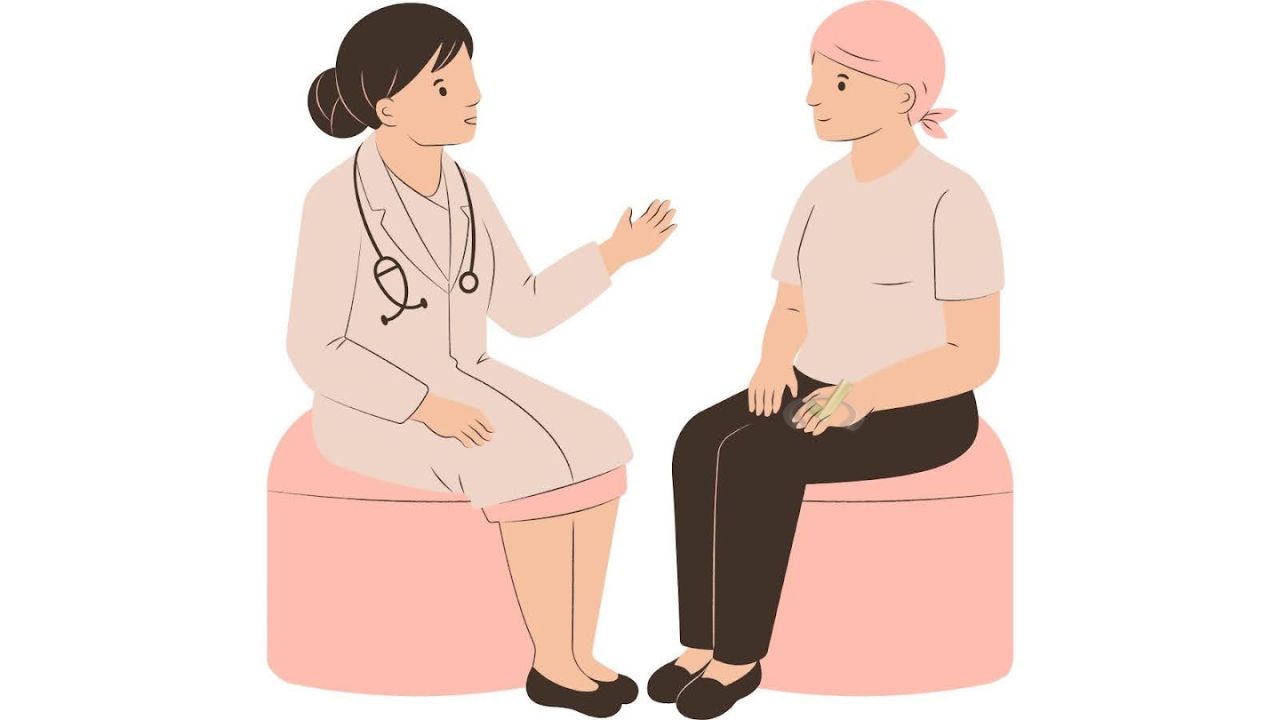
If you're a Registered Nurse (RN) who's thinking about furthering your education with a Bachelor of Science in Nursing (BSN), one question may stand out above all others: Do you have to take the NCLEX again for BSN?
After all, the NCLEX is the major hurdle for anyone looking to become a nurse, so it makes sense to wonder if it’s something you’ll need to deal with again when advancing your education.
The short answer is: No, you don't have to take the NCLEX again for a BSN. But let’s dive deeper to understand exactly why that is, and explore what the process looks like from here on out. There’s a lot more to this than just a simple “yes” or “no” answer, so let’s break it down in a way that’s easy to digest.What Is the NCLEX and Why Is It So Important?
Before we dive deeper into the specifics, let’s quickly review what the NCLEX is, and why it’s so important for aspiring nurses. The National Council Licensure Examination (NCLEX) is a standardized test required for anyone who wants to become a nurse in the United States.
Whether you're pursuing a career as a Licensed Practical Nurse (LPN) or Registered Nurse (RN), passing the NCLEX is a crucial step toward earning your nursing license.
The NCLEX evaluates a nurse’s ability to provide safe and effective care. It covers a wide range of areas, including patient safety, pharmacology, disease management, and clinical decision-making.
It’s a test that ensures all nurses are equipped with the knowledge necessary to care for patients effectively. As a nurse, you’ll need to be able to think critically and act swiftly—and the NCLEX helps to measure these skills.
The NCLEX comes in two versions: the NCLEX-RN for Registered Nurses and the NCLEX-PN for Practical Nurses. No matter which version you take, passing it means you’ve met the basic standards required to work in a nursing role.
Whether you’re starting out with an ADN (Associate Degree in Nursing) or advancing your career with a BSN, your NCLEX-RN or NCLEX-PN will be your ticket to becoming a licensed nurse. But once you’ve passed it and become an RN, do you have to take it again if you choose to go back to school for a BSN? Let’s find out.

Do You Have to Take the NCLEX Again for BSN?
Now, let’s tackle the main question: Do you have to take the NCLEX again for BSN?
The answer is straightforward: No, you don’t have to retake the NCLEX for BSN if you’re already licensed as an RN.
Once you’ve passed the NCLEX and earned your RN license, that license remains valid regardless of whether you pursue an ADN, BSN, or another nursing degree.
The NCLEX is only required once for licensure as an RN, and a BSN program simply builds upon the knowledge and skills that you’ve already acquired. So, you don’t need to take the NCLEX again to advance your education.
Why Don’t You Have to Retake the NCLEX?
You might be wondering why this is the case. The key is understanding that the NCLEX is about your licensure as an RN, not the degree you hold.
Whether you hold an ADN or a BSN, you are still a Registered Nurse with the same scope of practice. The BSN program is an educational advancement that prepares you for leadership roles and specialized areas of nursing practice. However, it does not require a new licensing exam, as your RN license is already in place.
The NCLEX only needs to be taken once, and it’s all about confirming that you have the necessary skills to be a nurse. Once you’ve passed, you’re good to go—no need to test again for a BSN.
A BSN, however, will give you a deeper understanding of areas like research, leadership, and community health, which will open up new career possibilities and job opportunities.
What If You Didn’t Take the NCLEX Yet?
Of course, if you haven’t taken the NCLEX yet, you’ll need to pass it before you can practice as a nurse—whether you’re working toward an ADN or a BSN. That’s the first step.
The process remains the same regardless of the type of program you’re in. You’ll complete your nursing program (ADN or BSN), prepare for the NCLEX, and then take and pass the exam to become licensed.
Once you’ve passed the NCLEX, you are officially an RN, and you’re able to pursue further education, including a BSN, without needing to retake the exam.
When Do You Need to Retake the NCLEX?
While most people won’t need to retake the NCLEX after completing their BSN, there are certain situations where you might have to go through the exam process again. Let’s go over a few cases where this might happen.
If Your RN License Expired
In most states, your RN license is valid for a certain period, usually two to three years. If you let your license expire or become inactive, you may need to go through the process of renewing it. In some cases, if your license has been inactive for a long time, you might be required to retake the NCLEX or fulfill additional requirements to get it reinstated.
To avoid this, keep track of your renewal dates and make sure you follow the guidelines for maintaining your license. Most state nursing boards will send reminders when it’s time for renewal, but it’s still a good idea to stay proactive.
If You Change States
Nursing licensure requirements differ from state to state. If you decide to move to a new state, you might need to apply for licensure there. Some states participate in the Nurse Licensure Compact (NLC), which allows you to practice in multiple states with a single RN license.
However, if the state you’re moving to isn’t part of the NLC, you might need to apply for licensure in that state.
In some cases, you may need to take the NCLEX again, but this is typically only required if your license has lapsed or if you’re changing from an LPN to an RN. It’s important to check with your new state’s Board of Nursing to determine the exact requirements.
If You Started as an LPN
If you started out as a Licensed Practical Nurse (LPN) and decided to upgrade to an RN, you’ll need to take and pass the NCLEX-RN to earn your RN license. After that, if you pursue a BSN, there’s no need to take the NCLEX again. You’re already licensed as an RN.

How to Prepare for the NCLEX the First Time
If you’re preparing for the NCLEX for the first time, you need to make sure you’re ready. It’s a big exam, and preparation is key. Here are a few strategies that will help you succeed.
Create a Study Plan
It’s important to start studying well before your test date. The NCLEX covers a wide range of topics, from patient safety and pharmacology to psychosocial integrity. Building a study plan will help ensure that you don’t overlook any key areas.
Dedicate time each day to reviewing specific topics, taking practice exams, and testing your understanding of nursing concepts. It’s easy to get overwhelmed, so breaking down your study plan into manageable chunks will help keep things organized.
If you’re feeling ready to start your study journey or want to enhance your current preparation, we’ve got you covered. Sign up for our NCLEX Daily Dose emails to receive daily tips, practice questions, and more, straight to your inbox.
Whether you're prepping for your first NCLEX or preparing for retakes, these emails are packed with insights that will help you stay on track and confident as you get closer to exam day.
Focus on Critical Thinking
The NCLEX is designed to assess your ability to think critically and make decisions in high-pressure situations. The questions you’ll face are not simply about recalling facts but about using your knowledge to solve real-world problems.
Practice critical thinking by working through case scenarios and answering practice questions. Consider the steps you would take in each situation and what would be the most appropriate intervention based on patient needs.
If you're looking for a quick reference to help you with your NCLEX prep, look no further than our NCLEX Cheatsheets. These cheatsheets cover essential topics and are designed to give you quick, digestible information that you can review anytime, anywhere. You can access the NCLEX Cheatsheets here to give yourself an extra edge as you prepare for the big test.Take Practice Exams
One of the best ways to prepare for the NCLEX is to practice with actual NCLEX-style questions. Many online resources offer practice exams and question banks.
Use these resources to familiarize yourself with the types of questions you’ll encounter and to build your test-taking stamina. Practice exams will also help you gauge your readiness and pinpoint areas where you may need additional study.
Take Care of Yourself
Studying for the NCLEX can be stressful, and burnout is real. Be sure to take breaks, eat well, and get plenty of rest. A healthy body and mind will help you stay focused and retain information more effectively. Remember, self-care is just as important as studying.
What Are the Advantages of a BSN?
If you're still wondering whether it's worth going back to school for your BSN, let’s explore some of the benefits. A BSN can open many doors for your career and help you reach your professional goals.
More Career Opportunities
With a BSN, you'll have more career options. Many hospitals and healthcare systems now require or prefer nurses with a BSN. Earning your BSN can qualify you for higher-level positions like nurse manager, educator, or even specialized roles in areas like community health, research, or public health.
Higher Earning Potential
BSN-prepared nurses often earn more than those with an ADN. While the difference in starting salaries may not always be significant, the potential for higher earnings increases as you move up the career ladder. Many healthcare employers offer additional incentives for nurses with a BSN, which can lead to a more lucrative career.
Job Security
Healthcare employers increasingly recognize the value of BSN-prepared nurses. With a BSN, you’ll have a competitive edge when it comes to job opportunities. Many healthcare facilities now prefer or require BSN nurses to improve patient care outcomes and meet accreditation standards.

Final Thoughts on Do You Have to Take the NCLEX Again for BSN?
To sum it up, if you’re already an RN, you don’t need to worry about taking the NCLEX again when you decide to go back for your BSN. The NCLEX is a one-time requirement for licensure as an RN, and once you’ve passed it, your license remains valid, even if you pursue further education.
However, if you haven’t taken the NCLEX yet, you’ll need to pass it before you can practice as an RN—whether you’re enrolled in an ADN or BSN program. The good news is, once you’re an RN, you’re free to focus on advancing your career with a BSN without worrying about additional exams.
A BSN offers numerous benefits, including more career opportunities, higher salaries, and job security. So, if you’re on the fence about whether it’s worth pursuing, the advantages are clear. Go ahead and start your journey to a BSN—you’ve already done the hard part by passing the NCLEX.
